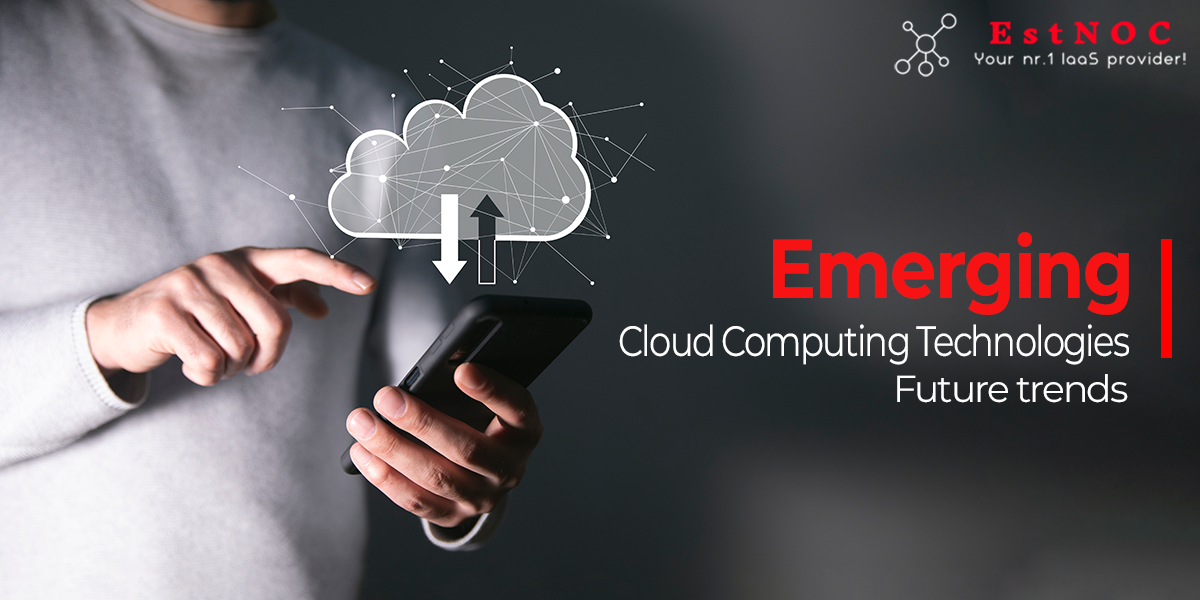10 Strategies for Optimizing....
In the ever-evolving..
By Admin / 13 February

Cloud computing has become the backbone of modern digital infrastructure, driving innovation and scalability for businesses and individuals. As the demand for digital transformation grows, so does the evolution of cloud technologies. Cloud computing in Switzerland is reshaping industries by providing scalable solutions that enhance operational efficiency and support secure data management. As Swiss companies increasingly adopt cloud services, the landscape is set for innovative developments that will redefine how organizations operate and leverage technology for growth.
So, through this blog discover the groundbreaking cloud computing technologies and trends that will revolutionize the future in the coming years!
Trends and Innovations Include:-
Imagine the cloud but closer to home—literally. Edge computing brings processing power closer to the source of data generation, reducing latency and bandwidth use. With more devices connected to the Internet of Things (IoT), edge computing is set to become a game-changer for applications that require real-time processing, like autonomous vehicles and smart cities.
Serverless computing is a trend that eliminates the need for developers to manage servers. Moreover, in a serverless architecture, you only pay for the resources you use, making it ideal for businesses with fluctuating workloads. While the term "serverless" is a bit misleading (servers still exist), it signifies that developers don't need to handle server maintenance.
The integration of Artificial Intelligence (AI) and Machine Learning (ML) with cloud computing opens up vast opportunities. Cloud platforms are increasingly offering AI-powered services, making it easier for businesses to implement AI without massive upfront costs. Further, from predictive analytics to natural language processing, AI in the cloud simplifies data-driven decision-making.
More businesses are adopting hybrid and multi-cloud strategies to avoid vendor lock-in and improve flexibility. A hybrid cloud combines on-premises infrastructure with cloud services, while a multi-cloud uses multiple providers. Moreover, this trend allows businesses to optimize performance, cost, and compliance across various environments.
As cloud adoption grows, so do security concerns. Emerging cloud security technologies like Zero Trust models, AI-driven threat detection, and encryption advancements are making the cloud safer for businesses and individuals alike.
The Internet of Things (IoT) complements cloud computing by connecting devices that generate vast amounts of data. This integration allows for better data storage, processing, and analysis in the cloud. With edge computing, IoT devices can also process data closer to where it’s generated, enhancing performance and reducing latency.
DevSecOps integrates security into the DevOps process, ensuring that security is a shared responsibility throughout the software development lifecycle. Therefore, this approach enhances cloud security by automating security checks and fostering collaboration among development, operations, and security teams.
Low-code and no-code platforms allow users to create applications without extensive programming knowledge. These platforms democratize app development, enabling business users to contribute to the development process while relying on cloud computing for storage and processing.
Kubernetes and Docker have transformed how applications are deployed and managed in the cloud. Docker enables containerization, while Kubernetes orchestrates those containers, automating deployment, scaling, and management.
Disaster recovery (DR) strategies are critical for ensuring business continuity in the event of a disruptive incident. Additionally, Cloud-based DR solutions enable rapid recovery and minimize downtime, protecting businesses from data loss and operational disruption.
Cloud computing is rapidly evolving, offering businesses opportunities for competitiveness. Emerging trends include edge computing, AI, and quantum computing. Understanding these trends, along with IoT, DevSecOps, low-code/no-code development, containerization, and disaster recovery, can unlock new opportunities and efficiencies.
EstNOC is a leading provider of cloud computing and other server hosting services, offering tailored solutions that empower businesses to optimize their operations. With a focus on reliability, security, and scalability, EstNOC helps organizations leverage the power of the cloud to enhance efficiency, reduce costs, and drive digital transformation for future growth.